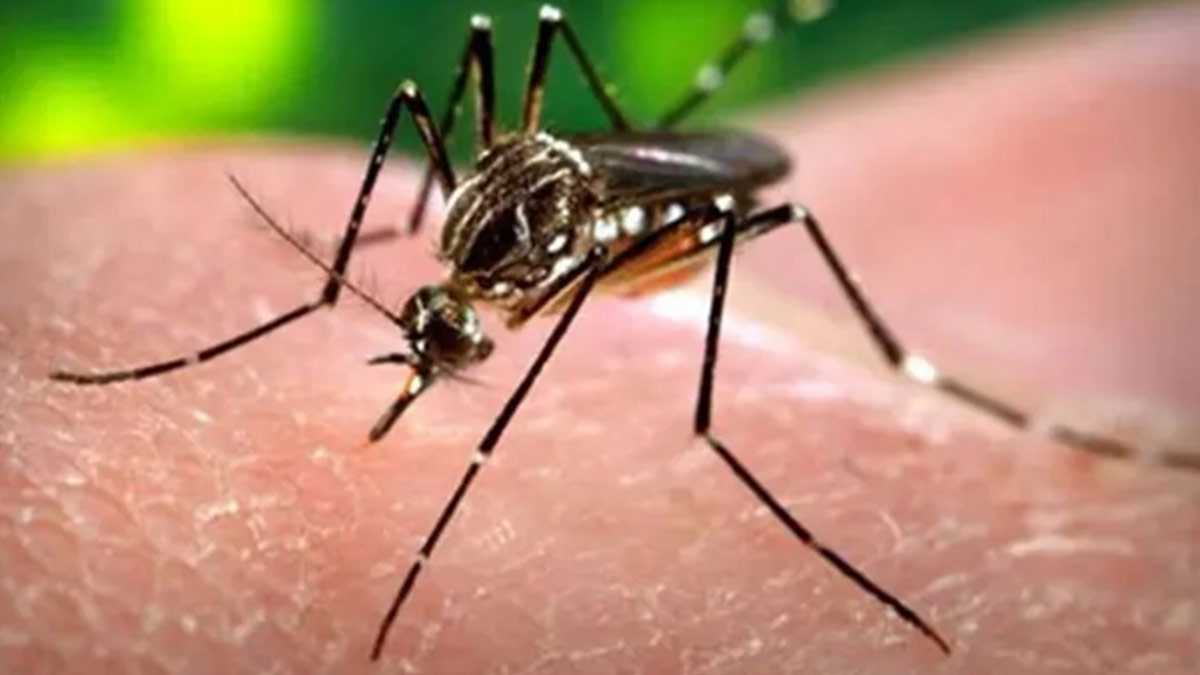
Maharashtra has witnessed a significant surge in mosquito-borne diseases in the first half of this year. According to the state health department data, the number of chikungunya cases more than doubled, while dengue cases remained nearly consistent with last year's figures. However, the state has also seen a notable increase in malaria cases, highlighting a growing public health concern.
Table of Content:-
Chikungunya Cases More Than Double
From January to July this year, Maharashtra reported 875 chikungunya cases, a significant rise compared to the 363 cases recorded during the same period last year. This increase has raised alarms across the state, prompting health authorities to intensify their efforts to control the outbreak. Pune tops the list with 83 confirmed cases, followed by Kolhapur with 82, Akola with 57, and Sangli-Miraj with 55 cases. Despite the rise in chikungunya cases, there have been no reported deaths due to the disease. However, severe symptoms have been observed among patients, including intense joint pain and difficulty walking. There has been a noticeable increase in fever, cough, cold, dengue, and chikungunya cases this season. Many of these cases are emerging from areas like Bhosari, Chakan, Baramati, and Phaltan. Dr Sanjay Kumar, Senior Consultant, at Tattvan E Clinics, highlighted the complications associated with chikungunya, such as severe bone pain and encephalitis. He emphasized the need for vigilance as these complications, though rare, can be severe.

Dengue Cases Remain Consistent
The state recorded 3,736 dengue cases from January to July this year, slightly up from 3,164 cases reported in the same period last year. Dengue has also claimed one life this year, underscoring the disease's persistent threat. Mumbai, Nashik, and Kolhapur accounted for 26% of the total dengue cases, with Mumbai reporting 513 cases, Nashik 348, and Kolhapur 141.
In Pune, 16 of the 720 suspected dengue cases tested positive. The Pune Municipal Corporation (PMC) has been proactive in addressing the issue, issuing over 1,000 notices to housing societies, construction firms, and other sites identified as mosquito breeding grounds. The PMC has also levied administrative fees totalling Rs 3.87 lakh to enforce compliance.
Also Read: New COVID-19 Variant KP.3 Is On The Rise; Symptoms To Look Out For And Preventive Measures
Rise in Malaria Cases
Alongside dengue and chikungunya, Maharashtra has also experienced an increase in malaria cases. The state reported 5,300 cases of malaria and three deaths from January to July this year, compared to 4,867 cases and two deaths during the same period last year. This upward trend has added to the public health challenges faced by the state.
Government and Community Efforts
The Maharashtra state government, along with municipal corporations, has been actively working to control the outbreak. Measures include regular fumigation, public awareness campaigns, and community participation in eliminating mosquito breeding sites. The government has also been monitoring the situation closely and providing necessary support to affected areas. The PMC's proactive approach in identifying and addressing mosquito breeding sites serves as a model for other regions. Community involvement in maintaining cleanliness and eliminating stagnant water sources is crucial in controlling the spread of these diseases.
Also Read: Two More Children Die Of Suspected Chandipura Virus In Gujarat, Death Count Reaches 8
Bottomline
The rise in chikungunya, dengue, and malaria cases in Maharashtra underscores the urgent need for comprehensive and sustained efforts to combat mosquito-borne diseases. With the monsoon season exacerbating the situation, it is imperative for both government authorities and citizens to remain vigilant and proactive. Preventive measures, timely medical intervention, and increased public awareness are key to controlling the spread and impact of these diseases. As the state navigates through this health challenge, continued cooperation and commitment from all stakeholders will be essential in safeguarding public health.
Also watch this video
How we keep this article up to date:
We work with experts and keep a close eye on the latest in health and wellness. Whenever there is a new research or helpful information, we update our articles with accurate and useful advice.
Current Version